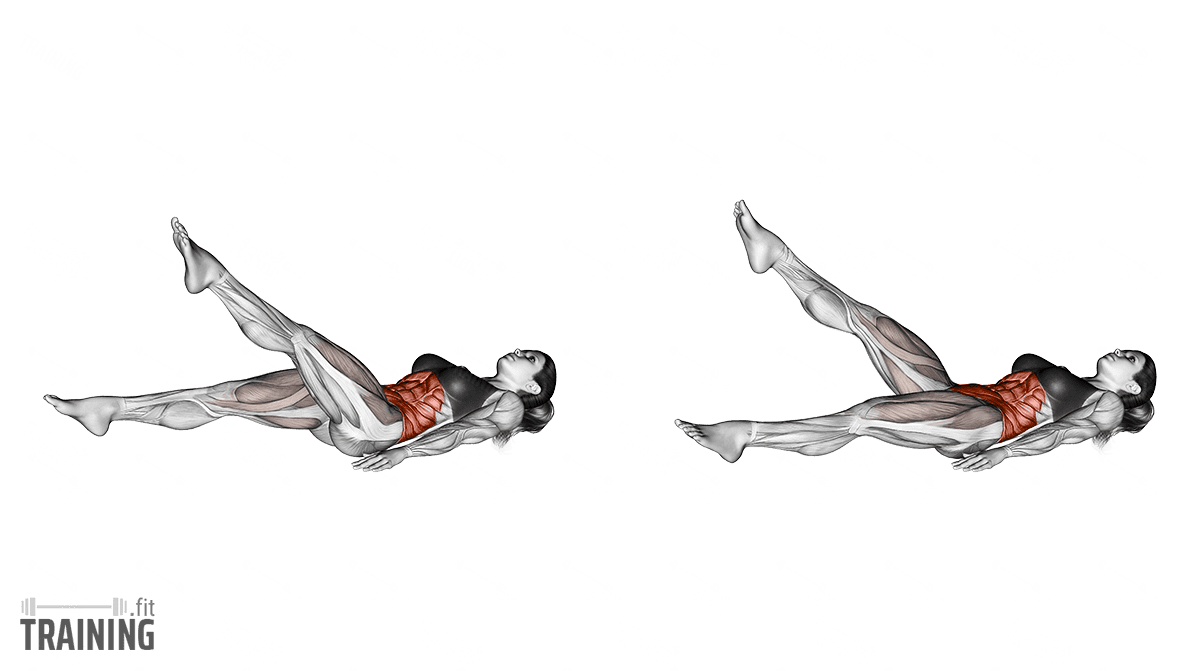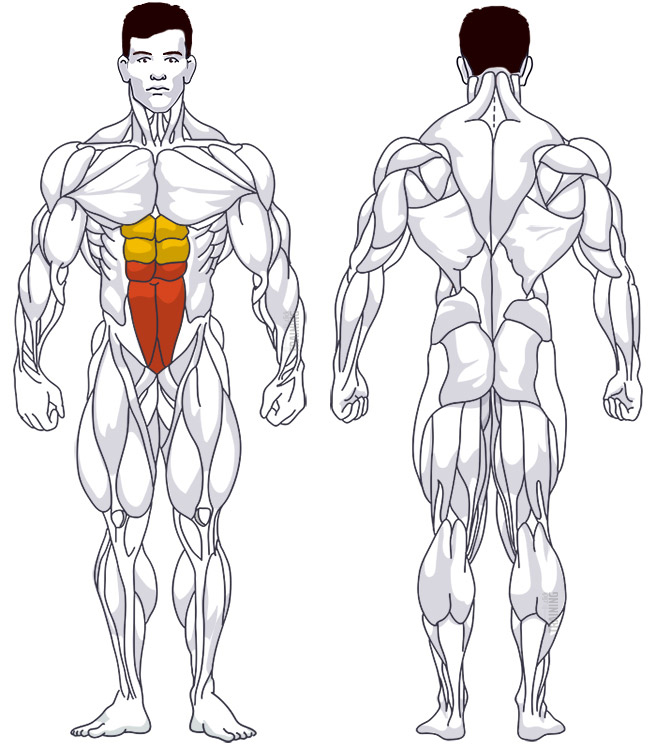Scissor Kicks
Isolation exercise, Body weightOverview

Main muscles
- Abdomen: Straight abdominal muscle
(Musculus rectus abdominis)
Training plans
Scissor Kicks is a suitable substitute for similar exercises in or as a supplement to various training plans.
Scissor Kicks: Basics and alternatives

Involved main muscle groups:
Scissor Kicks
Scissor Kicks is a fantastic exercise for targeting your lower abdominal muscles. To do this exercise, lie on your back and alternately lift your legs straight up. This not only works your core but also your straight abdominal muscles. With a low center of gravity, the focus is on the lower abdomen, making it perfect for home workouts since all you need is a soft surface.
Scissor Kicks can be seen as a foundation for the “Bicycle Crunches” exercise. In both exercises, legs are alternately lifted, but Bicycle Crunches involve a cycling-like motion with bent knees and pedaling movements. The shoulders also move, and the upper body curves, incorporating Crunches in the execution.
Scissor Kicks, on the other hand, targets fewer muscles but is still excellent for focused lower abdominal training. Other home workout alternatives include Reverse Crunches and Hanging Knee Raises, though the latter requires a pull-up bar.
Correct Execution
Scissor Kicks can be performed with slight variations in hand positioning, leg extension, movement range, and speed.
Usually, hands are placed next to the body with palms facing down for stability. In the second variation, shown in the video, place your hands under your buttocks, slightly lifting your pelvis and increasing the movement range. Try both options and choose what works best for you.
To achieve the best training effect, your legs should be straight with only a slight knee bend, if any. Beginners may bend their knees more initially, but be cautious as this reduces movement range and resembles Bicycle Crunches more. Strive for a clean execution without knee movement and work towards straighter legs over time.
During the exercise, you can control the movement range by lifting your legs higher or keeping them lower. Lifting your legs slightly while increasing speed can also improve endurance.
Video Tutorial
Step-by-Step Instructions
Lie on your back on a suitable workout surface.
Extend your legs straight down.
Place your hands with extended arms next to your body, palms facing down.
Lift your hips slightly and slide your hands under your buttocks. Let your buttocks rest on your hands. Your hips are now positioned higher. You’re in the starting position.
Now, lift one leg up, keeping it straight. Stop the upward movement before needing to bend your knee.
Lower the leg and lift the other leg simultaneously. Repeat this alternating movement until the end of the exercise.
Common Mistakes
Since this exercise doesn’t require any equipment and most of your body remains stationary, there’s minimal room for error. The key to a clean Scissor Kicks execution is maintaining a tense body posture. Achieve this by consciously keeping your legs straight, ensuring tension remains in the lower abdominal area throughout the exercise.